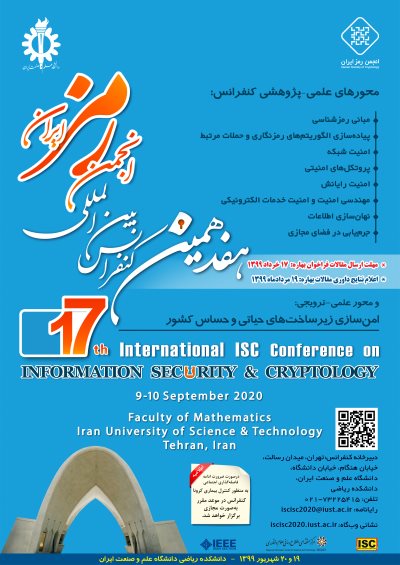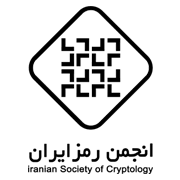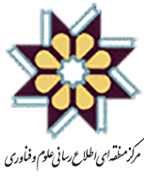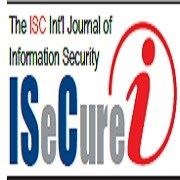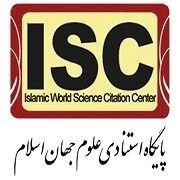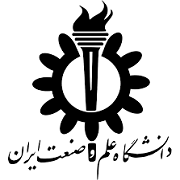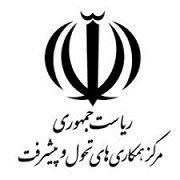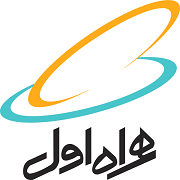
-
صفحه نخست
-
درباره کنفرانس
-
سخنرانی های کلیدی و مدعو
-
راهنمای تدوین و ارسال مقاله
-
راهنمای اقامت
-
سوالات متداول
-
اخبار
-
حامیان
-
محل برگزاری
-
درباره
-
فراخوان رساله و پایان نامه برتر
-
تماس با ما
-
اخلاق مهندسی
-
راهنمای ارسال مقالات پذیرفته شده
-
راهنمای ثبت نام و پرداخت هزینه
-
برنامه زمانبندی کنفرانس
-
چکیده مقالات پذیرفته شده
-
کتابچه کنفرانس
-
فیلم سخنرانی های کنفرانس

Elham Kashefi
Professor, University of Edinburgh, Scotland
https://www.inf.ed.ac.uk/people/staff/Elham_Kashefi.html
Title: Quantum Protocol Zoo
Abstract:
Future information and communication networks will certainly consist of both classical and quantum devices, some of which are expected to be dishonest, with various degrees of functionality, ranging from simple routers to servers executing quantum algorithms. Most of the technology required to achieve advanced stages of a quantum internet is still in its infancy, hence it is very hard to predict the potential use cases. Several applications, however, have already been characterized depending on the different stages of a quantum network such as secure delegated quantum computing, quantum key distribution, clock synchronization, leader election, quantum digital signatures, quantum money among others. Such applications promise to impact and transform the society on multiple levels including communication, accessing information and security. Therefore, it would be extremely useful to have a standard framework to describe the protocols that are relevant to quantum internet such that they become available to the diverse quantum information science community. We take the first step in this direction and call such an initiative: The Quantum Protocol Zoo which consists of an organised collection of protocols that could be implemented (or simulated) in the coming years. In this lecture I present an overview of the filed through this new platform of interaction with various communities contributing to it.
Bio:
Elham Kashefi is Professor of Quantum Computing at the School of Informatics, University of Edinburgh, and Directeur de recherche au CNRS at LIP6 Sorbonne Universite. She co-founded the fields of quantum cloud computing and quantum computing verification, and has pioneered a trans-disciplinary interaction of hybrid quantum-classical solutions from theoretical investigation all the way to actual experimental and industrial commercialisation (Co-Founder of VeriQloud Ltd). She is the founder of national quantum networks (QuOxIC and QUISCO) and member of multiple institutions (CQIQC in Canada, Li-Fi R&D Centre in Edinburgh, PCQC in France). She has been awarded several UK, EU and US grants and fellowships for her works in developing applications for quantum computing and communication. She served as the Associate Director of the NQIT Hub before being elected to lead the software activities within QCS.
-----------------------------------------------------------------------------------------------------------------------------------

Salil Kanhere
Professor, UNSW Sydney, Australia
Title: Blockchain for Cyber Physical Systems
Abstract:
Cyber Physical Systems (CPS) are transforming the way we interact with the physical world around us. However, centralised approaches for CPS systems are not capable of addressing the unique challenges of CPS due to the complexity, constraints, and dynamic nature of the interactions. To realize the true potential of CPS, a decentralized approach that takes into account these unique features is required. Recently, blockchain-based solutions have been proposed to address CPS challenges. Yet, applying blockchain for diverse CPS domains is not straightforward and has its own challenges. In this talk, we share our experiences in applying blockchain technology for CPS with an aim to provide insights and highlight the challenges and future opportunities. We will cover uses cases including supply chains, energy systems and Internet of Things.
Bio:
Salil Kanhere received the M.S. and Ph.D. degrees from Drexel University, Philadelphia, USA. He is currently a Professor of Computer Science and Engineering with UNSW Sydney, Australia. His research interests include the Internet of Things, cyber physical systems, blockchain, pervasive computing, cybersecurity, and applied machine learning. Salil is also affiliated with CISRO’s Data61 and the Cybersecurity Cooperative Research Centre. He is a Senior Member of the IEEE and ACM, an Humboldt Research Fellow, and an ACM Distinguished Speaker. He serves as the Editor in Chief of the Ad Hoc Networks journal and as an Associate Editor of the IEEE Transactions On Network and Service Management, Computer Communications, and Pervasive andMobile Computing. He has served on the organising committee of several IEEE/ACM international conferences and is the General Chair for the IEEE International Conference on Blockchain and Cryptocurrency 2021. He has co-authored a book titled Blockchain for Cyberphysical Systems. Further details are at www.salilkanhere.net.
-----------------------------------------------------------------------------------------------------------------------------------

Rasool Jalili
Associate Professor, Sharif University of Technology, Iran
http://ce.sharif.edu/faculty/rasool-jalili
دگردیس رانگی افتایی ما
Metamorphic-Driven in Our CyberSecurity
چکیده: فضای مجازی، در همه جای دنیا، یک زیست بوم رقیبِ مکملِ پیروز برای زندگی جاری بشر در ابعاد شخصی، اجتماعی، و بین المللی است. این زیست بوم، مدل جدیدی از کسب و کار را به ارمغان آورده است که در آن مشتری بخشی از خدمات جلوی جبهه نیاز خود را با کیفیت خوب و رایگان دریافت می کند و ما به ازای آن، داده نامشهود خود را می پردازد. در این داد و ستد، سکوی ارائه دهنده، خدمت مشهود (و جهتدهیهای نامشهود) خود را می دهد (داد) و داده و مشی و حریم خصوصی و قابلیت حکمرانی را می ستاند (ستد). اینترنت اصلی ترین زیرساخت فضای مجازی است. امتداد اینترنت در کشور ما، یعنی نگاشت اینترنت بر جغرافیای سیاسی ایران، شبکه ملی اطلاعات (ایرانت) نامیده می شود. بنابراین، ایرانت اصلی ترین زیرساخت فضای مجازی کشور است. در این سخنرانی، ابعاد مختلف امنیت ایرانت که همان افتا (امنیت فضای تولید و تبادل اطلاعات) است معرفی و دگ��دیس رانگی امنیت در فضای مجازی کشور تحلیل خواهد شد.
امنیت فضای مجازی کشور تنها بر پایه ی امنیت ایرانت بنا می شود و قوام دارد. امنیت ایرانت یکی از بنیادها و بنیان های امنیت و حاکمیت ملی، منطقه ای، و بین المللی جمهوری اسلامی ایران است. علیرغم وجود اسناد بالادستی و نهادهای قانونی تصویب و ابلاغ قوانین مربوطه؛ در شناخت مبانی، ادبیات، اجزا، و مؤلفه های این اَبَر موضوع؛ اجماع نخبگانی و حتی (در مواردی) حکمرانانه وجود ندارد. طرح موضوع و ارائه مصادیق این نگرش واگرایانه در قالب مجموعه ای از دوگانه ها و دگردیس شونده (دگردیس شده) ها می تواند به درک موضوع و تلاش جمعی نخبگان افتای کشور در این کنفرانس، برای حل موضوع و همگرایی کارشناسانه کمک شایان توجهی بنماید. ابعاد فنی، اجتماعی، سیاسی این دگردیسی با توجه به تجربیات و شواهد عینی مطرح خواهد شد.
-----------------------------------------------------------------------------------------------------------------------------------
مهندس ابوالفضل روحانی
رئیس هیئتمدیره کانون هماهنگی دانش، صنعت و بازار
عنوان سخنرانی: کانون هماهنگی افتا؛ همگرایی، همکاری و تصمیمسازی
چکیده: در اقتصاد دانشمحور، توسعه فناوری بر اساس همکاری سه رکن مهم یعنی بخش تولیدکننده دانش (دانشگاهها و سازمانهای تحقیق و توسعه)، بخش صنعت (عمدتاً بخش خصوصی) و بخش بازار (دولت و نهادهای عمومی) استوار است. اینکه بتوان ارتباط بین این سه بخش را در قالب نهادی واسط به نام کانون هماهنگی دانش، صنعت و بازار برقرار کرد، موضوع مقدمه این گفتار است.
از دیگر سو، توسعه زیرساختها و راهکارهای اقتصاد دیجیتال و انقلاب صنعتی چهارم بستر توسعه بازار پیشروی فضای مجازی تبادل اطلاعات را فراهم نموده است. با توجه به ظرفیتهایی که در هر سه بخش گفتهشده در صنعت افتای کشور وجود دارد، در ادامه به بیان نمایی از این وضعیت و فرصتهای پیش رو جهت توسعه بازار، کسبوکارها و دانشافزایی پرداخته میشود. نهاد کانون هماهنگی افتا با پشتوانه معاونت علمی و فناوری ریاست جمهوری میتواند حلقه اتصال و هماهنگکننده، همگرا کننده و تصمیمساز افتای کشور باشد.
-----------------------------------------------------------------------------------------------------------------------------------
- امروز :
- دیروز :
- ماه جاری :
- ماه گذشته :
- آمار کلی :
ثبتنام در کنفرانس برای افرادی که دارای مقاله نیستند، رایگان است.
برای دریافت گواهی شرکت در کنفرانس و مستندات آن، ثبتنام در کنفرانس الزامی است.
-
مهلت ارسال مقاله در فراخوان اول (زمستانه)
1398/10/21 -
تمدید مهلت ارسال مقاله در فراخوان اول (زمستانه)
1398/11/02 -
اعلام نتایج داوری در فراخوان اول (زمستانه)
1398/12/28 -
مهلت ارسال مقاله در فراخوان دوم (بهاره)
1399/03/17 -
تمدید فراخوان بهاره
1399/03/31 -
اعلام نتایج داوری در فراخوان دوم (بهاره)
1399/05/25 -
تاریخ شروع
1399/06/19 -
تاریخ پایان
1399/06/20
